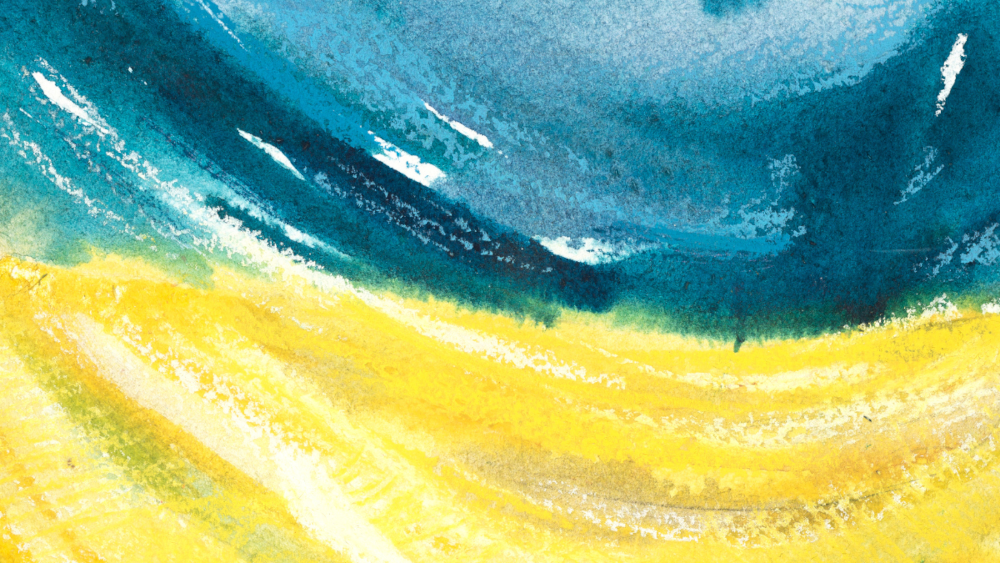With the Russian invasion of Ukraine, the Odessa International Literature Festival became itinerant. Last year it was held in Batumi, Georgia, while this year it will take place at the Goethe Institute in Bucharest from February 22nd to 25th
It can be difficult to imagine scenes of everyday life and normality amidst bombings, insecurity, poverty and terror. But nevertheless, life goes on, continues and reinvents itself even during times of conflict. Humanity is resilient and infinitely creative in finding solutions for both good and evil.
The Odessa Literature Festival, which began in 2015 thanks to the founders Ulrich Schreiber (Germany) and Hans Ruprecht (Switzerland), was held last year in Batumi, Georgia, while this year it will take place at the Goethe Institute of Bucharest. Since the war in Ukraine began, the Odessa Festival has become itinerant.
For four days in a row, English, Ukrainian and Romanian will be spoken, addressing topics such as the future of Europe, relations between the countries of the Black Sea region, freedom and the power of the written word. When the word becomes strength, emotion, energy, awareness, propaganda.
The Romanian writer Radu Vancu, exegete, translator and professor at the Lucian Blaga University of Sibiu, will give the opening speech of the festival. In a press conference, Radu Vancu said warmly and firmly:
“The Europe that we must build through our words is a Europe in which they are not used to generate death or ideologies of extermination – but a Europe in which words are witnesses against barbarism. In which words testify that people can be killed, but not destroyed. In which they work in the service of humanity, not of ideologies. Because now we know: where words fail, history fails. And it becomes horror again. We must build a Europe in which words do not betray man. Not again. Otherwise, everything that literature has ever meant, everything that art has ever meant, has simply been a lie. The only Europe that is not a dead civilization is this : a Europe in which words do not betray man.”
The festival’s rich agenda of events includes guests such as Ukrainian authors Iya Kiva, Vasyl Makhno and Yuriy Vynnychuk, an emblematic figure of Ukrainian literature and a tireless critic of the political system.
Among the Romanian authors: the poet Nora Iuga, Dan Sociu, Nikita Danilov and Radu Vancu. The public will also have the opportunity to meet the famous Philip Sands from Great Britain, Olivier Guez from France, Daniel Kehlmann and Norman Ohler from Germany, Karl-Markus Gauss from Austria, Ariane von Graffenried and Jonas Lüscher from Switzerland. Ilaria Gasperi from Italy will present her literary podcasts “Chez Proust” and “Bachmann”.
Particularly interesting – the section “Stories from the Black Sea”, where five writers will gather for an exchange of views on regionality, identity and the possibility of a common language in the context of the current crises of literature: Lavinia Braniște (Romania), Eka Kevanishvili (Georgia ), Anush Kocharyan (Armenia), Halyna Kruk (Ukraine) and Ina Vultchanova (Bulgaria).
Also notable is the meeting “Il Pianeta Populista, voci di un mondo in turmoil / Populist Planet – Voices of a World in Turmoil” with the Swiss writer and essayist Jonas Luscher, moderated by Joachim Umlauf, director of the Goethe-Institut in Bucharest. What do populists around the world have in common? What kind of world and society do populists promise? – these are some of the questions that will seek answers in the meeting with Jonas Luscher.
Cinema will not be missing with the screening of the Romanian film “Healed Hearts” (2016), directed and written by Radu Jude and the documentary “Photophobia” (2023), written and directed by Ivan Ostrochovský and Pavol Pekarcík; co-production between Slovakia, Czech Republic and Ukraine, filmed in Ukraine during the Russian invasion and subsequently selected as Slovakia’s entry for best international feature film at the 96th Academy Awards.
One day of the festival will be dedicated to Ukrainian literature, Monday 24 February, on the occasion of the anniversary of the outbreak of the war. A very special poetic moment dedicated to the authors Viktoria Amelina, Volodimir Vakulenko and Maksym Kryvtsov, killed during the conflicts.
Amelina was a writer turned war crimes researcher after the large-scale invasion began. In this role, she raised international awareness of the death of Vakulenko, a celebrated writer of children’s literature, who was kidnapped in the spring of 2022 by Russian forces occupying her village in Kharkiv Oblast. Vakulenko’s body was identified on November 28, 2022, after being found in a mass grave in a forest near Izium. He was 49 years old when he was killed. Kryvtsov, on the other hand, was a poet and public figure who would have turned 34 on January 22, but was killed on January 7 while fighting at the front.
The event on the last evening will be attended, online and in person, by important names in international literature such as Vasil Mahno, Svitlana Bondar, Yuri Vinnishuk (Ukraine), Marie Iljašenko (Czech Republic), Jan Konnefke (Germany/Romania, online), Halina Kruk (Ukraine, online), Daniel Kehlmann (Germany, online), Héctor Abad Faciolince (Colombia, online), Nichita Danilov, Dan Sociu (Romania).
The anniversary of the war in Ukraine is not to be celebrated at all, but the fight for peace, for freedom of speech and thought certainly is. The Odessa International Literature Festival, which continues to take place, although itinerant, represents a small but important victory.
Full festival program available on the official website: www.litfestodessa.com .
Have you thought about a subscription to OBC Transeuropa? You will support our work and receive preview articles and more content. Subscribe to OBCT!
Comments, where possible, are screened by our staff before being made public. The time required for this operation can vary. Go to our policy
